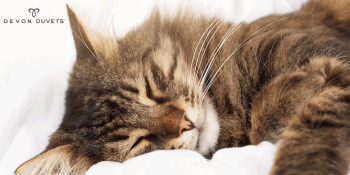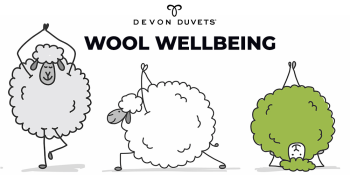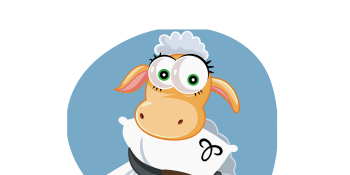Page 9 - Wool Wellbeing
-
June 29, 2022
New research, conducted by British Wool to mark its ‘In Bed With The Menopause’ campaign, found that 65% of women didn’t know the menopause could affect sleep until going through it. The research also looked at the wider effects of the menopause and the symptoms women were experiencing.
-
June 22, 2022
We’ve all been there - trying to change our duvet cover and wondering if there is an easier way. Single duvet covers are manageable, but when it comes to a King, Super King or Emperor size then it becomes far trickier - especially if you have having to do this by yourself!
-
May 25, 2022
Although we are all individuals, each of us with our own life journey, talents and quirks, we all have one very important thing in common. We all need our sleep. Sleep is critical for our wellbeing – physically, mentally and emotionally and is as vital to us now as it was thousands of years ago.
-
May 03, 2022
As the lyrics in Bob Dylan’s song states “Times, they are a changing” and throughout time, our sleep patterns have also changed. Historical research shows that there is a huge amount of evidence that people in Western societies used to sleep in two phases (biphasic); known as ‘first sleep’ and ‘second sleep’.
-
April 19, 2022
It’s amazing to think that certain types of food and drink can help you to sleep better – but it’s true! Most of us know that chocolate and other sugary foods are more likely to rev you up, and even more so if you are tucking into them before bedtime. Spicy, fatty and acidic food (such as curry, onions, pickles and strongly flavoured crisps) eaten late at night can also cause sleep issues.
-
April 11, 2022
When the season changes and nights get warmer, many of us change to a lighter duvet. However, with lots of options to choose from, how do you decide which to go for? In our blog we discuss the benefits of duvets made with natural materials and make some suggestions as to which might help you achieve a more restful night as temperature's rise.
-
March 30, 2022
April is Stress Awareness Month and it is now widely recognised that not getting enough uninterrupted sleep each night can have an impact on our stress levels. If we’re not sleeping properly, then we are tired during the day, we find it hard to concentrate and can struggle with our daily jobs and chores. This can then add to the usual stresses of everyday life.
-
March 23, 2022
st Friday, 18th March, was World Sleep Day. The focus for this annual event is the importance of sleep for our health and wellbeing. Our founders and owners, Dick and Pauline Beijen were approached by a number of UK radio stations, from Scotland to Cornwall, and as far as the Channel Islands, to talk about sleep and how to create the best environment to help achieve a great sleep when you tuck yourself up each night. They were also featured on Sky News Radio.
-
January 24, 2022
Now that we are in to 2022, we all have hopes for a positive year that will bring us happiness and wellbeing. A good immune system is so important for good health and trying to live a healthier lifestyle will help give this a boost.
-
December 21, 2021
Why do we seem to feel more tired in winter? In our blog we discuss how this is a natural phenomenom and how the production of melatonin (the 'sleep hormone') increases with the longer hours of darkness. This can make it harder to get out of bed to start our day, so we also offer some tips on what can help us feel a bit more energised.
-
December 09, 2021
Having a great night’s sleep is very important for health and wellbeing – and, of course, we know that 100% wool filled bedding will aid a better night’s sleep. Wool’s temperature regulating properties, combined with its resistance to dust mites and the build-up of micro bacteria means that it not only helps you to maintain a balanced core body temperature whilst you sleep, but it’s also more hygienic - and great for asthma sufferers.
-
September 20, 2021
One of the biggest causes of allergies are dust mites, those tiny insects found in household dust. According to a report by the charity Allergy UK, they are the UK’s most common indoor allergen.














